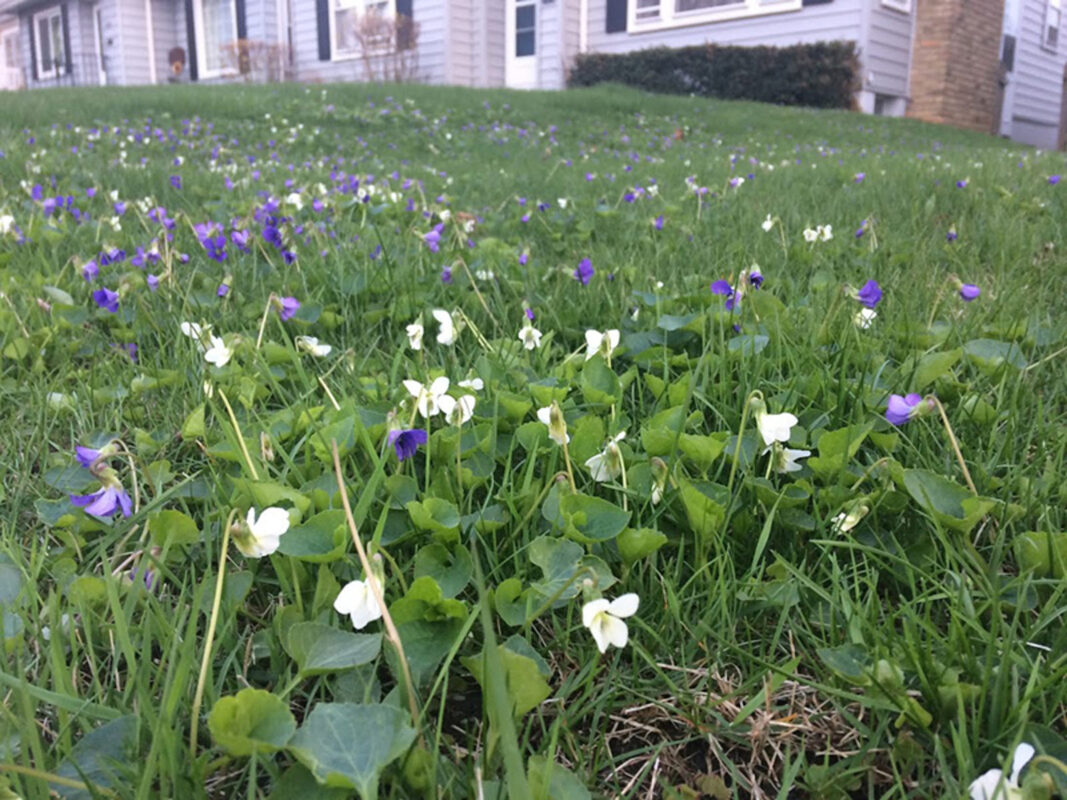|
Having a nice lawn is something that many people think about, especially during the summer. By targeting several management strategies, lawn care can become more environmentally friendly and help keep our water clean. Leave the clippings on your lawn. Over time the action of mowing and taking away the clippings can deplete the soil of valuable nutrients. Leaving the clippings returns these nutrients to the soil and can promote less fertilizer usage over time. Mow high. Adjust your lawn mower to mow in the 3 to 4 inch range. In general, grass should be in the 4 to 4.5 range at its longest. The health of the grass significantly increases when you can leave more green growth on the plant. Healthier grass means that your lawn will have less instances of disease, insect and weed issues. Keep your lawn mower blades sharp. This ensures that you are not tearing/shredding the blades of grass. Continuously tearing and/or shredding the plant can hurt the crown of the plant and ultimately kill the grass. Check at your local hardware store as to who in your local area can sharpen your blades. Fertilize in the fall. Fertilizer applications should always be based on a soil test. Fertilizing without a soil test can easily lead to over-applying fertilizer, which can cause problems for our environment such as algae blooms in our local waterways. If you choose to fertilize, a late fall application in September and then in mid to late October is the best time. Adding a fertilizer application again in mid- to late May helps keep the lawn green and healthy throughout the summer. Do not add fertilizer during or right before an expected rain event as that is throwing money away, and adding nutrient pollution to local waterways. Consider letting the grass go dormant in a dry summer. If the summer is dry, you may decide to save water and not irrigate your lawn. If you choose this option, the grass will go dormant and turn brown. Don’t worry, the grass is not dead. It will revive when cooler weather and rain come back in the fall. Grass generally does not die until you have 4-6 weeks of very dry weather. Choosing to water is your personal decision but know that you should water deeply and infrequently rather that quickly and often. As a general rule apply a half-inch of water every four weeks after the lawn turns brown. Also, it is important to minimize traffic on a dormant lawn to reduce possible damage. Rethink your lawn. Did you know that we can thank pollinators for 1 in 3 bites of our food? Unfortunately, grass does not offer the nectar or pollen sources that pollinators need to survive. Consider turning part of your landscape into a pollinator garden or admiring the beauty that clover, violets and dandelions provide in a sea of green. It is important to do your research on local ordinances especially if you choose to make your yard a “pollinator lawn”. To check out more information on pollinator lawns, go to Michigan State University, https://pollinators.msu.edu or the Blue Print Partnership, https://bluethumb.org/ . Photo credit: Metro Blooms For additional questions on conservation minded lawn care, contact the Warren County Soil and Water Conservation District main office at 513-695-1337.
Additional Resources:
29 Comments
12/2/2021 12:20:47 pm
I want to make sure that my lawn is healthy and lasts a long time. It makes sense that I would want to ensure that it's good for the environment, too! I'll be sure to work with a professional to help me out with this.
Reply
3/24/2022 09:56:41 pm
I'm glad that you talked about the importance of considering the weather in your area and having a solution for safety. My aunt mentioned to me last night that she is planning to buy solutions for her lawn as their current lawn has discoloration and asked if I have any idea what is the best option to do. Thanks to this informative article and I'll be sure to tell her that it will be much better if she consults trusted lawn solutions services as they can answer all her inquiries and will surely provide good-quality winter grass.
Reply
5/23/2022 10:06:06 pm
Thank you for explaining that leaving the clippings can promote less fertilizer usage since they provide nutrients. My mother wants to treat our lawn to make it more appealing. I should advise her to look for a contractor that can guide her through the proper lawn care treatment.
Reply
6/9/2022 10:11:14 am
Thank you for these great suggestions about being mindful with lawncare! It's very important to remember that how we take care of our lawns are not only for our own satisfaction but also for the environment around us. Love these ideas!
Reply
9/28/2022 01:51:36 am
I recently moved into a new home and had a lawn in mind for my garden. I appreciate you pointing out that fertilizing without first doing a soil test can easily result in over-fertilizing, which can have negative effects on the ecosystem. I'll work with a commercial lawn care company to assist me to mow the grass.
Reply
10/12/2022 07:44:27 am
Beautifully write , We are honored to receive this award and look forward to continuing to serve the Fort Collins community with exceptional lawn care service.
Reply
10/25/2022 02:07:02 am
Lawn care is an important part of conserving our environment. By using the proper techniques, we can help reduce pollution and conserve water.
Reply
1/10/2023 12:37:17 pm
Very much appreciated. Thank you for this excellent article. Keep posting!
Reply
1/12/2023 04:49:05 pm
I appreciate what you said about making sure the blades are constantly sharpened. My lawn mower is having trouble making clean lines. I'll have to have the blades sharpened.
Reply
3/6/2023 10:13:35 pm
I'm glad you talked that a four to five-grass lawn range is the best solution for a functional lawn. My aunt informed me yesterday that she planned to have their lawn serviced to boost the look and function of their lawn. She asked if I had thoughts on the best option to resolve it. I appreciate this instructive article, I'll tell her it will be much better if she consults trusted lawn mowing services as they can provide details about the process.
Reply
4/2/2023 09:24:36 am
Maintaining our lawns is an essential aspect of environmental conservation. By utilizing the legitimate procedures, we can assist with decreasing contamination and preserve water.
Reply
4/2/2023 09:26:25 am
I really appreciate your thoughtful advice regarding lawn care! Keep in mind that how we maintain our lawns is not only for our own satisfaction but also for the well-being of the surrounding environment. I love these concepts!
Reply
4/15/2023 06:09:29 am
Conservation-minded lawn care is an approach to lawn maintenance that focuses on preserving natural resources and minimizing environmental impact. This can involve a range of practices, such as reducing water usage, using organic fertilizers and pest control methods, and planting native grasses and plants that require less maintenance and resources. It's also important to avoid over-fertilizing or over-watering your lawn, which can lead to nutrient pollution and wasted water. By taking a conservation-minded approach to lawn care, you can help protect the environment, conserve resources, and promote a healthy and sustainable landscape.
Reply
5/16/2023 09:36:55 am
This article on conservation-minded lawn care is a fantastic resource for anyone looking to maintain a beautiful lawn while minimizing their environmental impact. The emphasis on reducing water usage through proper irrigation practices and implementing native plants and grasses to enhance biodiversity is commendable. I particularly appreciate the mention of organic fertilizers and the reminder to avoid harmful chemicals that can harm the ecosystem. It's inspiring to see the shift towards sustainable lawn care practices, and I'm excited to implement these tips in my own yard.
Reply
5/31/2023 10:33:32 am
"Great post! Thanks for sharing this awesome article.
Reply
11/30/2023 11:42:10 pm
This article is a timely reminder of the responsibility we have as homeowners to adopt conservation-minded lawn care practices. One thing I've found effective is planting native grasses and plants in my yard, which not only require less maintenance but also support local wildlife.
Reply
1/12/2024 08:58:29 am
I'm delighted to hear that you found the article on conservation-minded lawn care practices valuable, and it's great to know that you've been implementing eco-friendly strategies in your yard, such as planting native grasses and plants. This approach offers numerous benefits, both for the environment and your own property. Look for recent reviews, articles, and user feedback about the app. Focus on credible sources and user reviews on app stores or forums where users discuss their experiences.
Reply
1/19/2024 12:15:04 pm
Reply
1/22/2024 08:07:48 am
I appreciate your kind words, and I'm here to assist with any questions or topics you may have in the future. Responsible and environmentally friendly lawn care practices are essential for maintaining our outdoor spaces while minimizing harm to the environment. If you or anyone else ever needs information, tips, or advice on various topics, whether it's about gardening, home maintenance, or any other subject, don't hesitate to reach out. I'm here to provide assistance and share knowledge. Thank you for your commitment to being a responsible steward of our environment!
Reply
2/13/2024 08:57:26 am
Reply
3/29/2024 12:54:22 am
Conservation-minded lawn care practices are vital for environmental stewardship, and I am grateful. How can homeowners integrate conservation practices into their lawn care routines without sacrificing aesthetics?
Reply
6/7/2024 03:12:04 am
Achieving a picture-perfect lawn requires attention to detail and a bit of elbow grease. Start by mowing your grass to the optimal height for your particular turf type - typically around 2.5 to 3 inches. Regular watering is key; aim for about an inch of water per week from rainfall or irrigation. Don't forget to fertilize in the spring and fall to keep your grass healthy and green. And when it comes to weeds, a targeted approach is best; consider spot-treating with herbicides or pulling them by hand. With consistent care, your lawn will be the envy of the block. Thanks for sharing your lawn care tips!
Reply
6/28/2024 07:27:49 am
TheLawnfather Inc. is a reputed lawn care company providing high-quality mowing, cutting, & other lawn care services in Calgary, Alberta. Give us a call now https://lawnfather.ca/residential-snow-removalhttps://lawnfather.ca/commercial-snow-removal/
Reply
TheLawnfather Inc. is a reputed lawn care company providing high-quality mowing, cutting, & other lawn care services in Calgary, Alberta. Give us a call now
Reply
7/26/2024 08:10:42 am
TheLawnfather Inc. is a reputed lawn care company providing high-quality mowing, cutting, & other lawn care services in Calgary, Alberta. Give us a call now https://lawnfather.ca/residential-power-raking/ https://lawnfather.ca/residential-spring-cleanup/ https://lawnfather.ca/residential-snow-removal/
Reply
TheLawnfather Inc. is a reputed lawn care company providing high-quality mowing, cutting, & other lawn care services in Calgary, Alberta. Give us a call now
Reply
Leave a Reply. |
Details
Warren County SWCD Staff BlogA blog to keep you informed on all the latest news at Warren County SWCD and in the conservation world. Archives
May 2024
Categories
All
|
|
|
Contact:PHONE: (513) 695 - 1337
EMAIL: [email protected] HOURS: Monday - Friday 7:30am - 4:00pm (except holidays) Connect:Warren County Soil & Water Conservation District Copyright © 2016
Warren SWCD Privacy Notice. Emails are serviced by Constant Contact. Constant Contact's Privacy Notice. |

